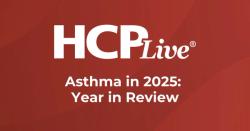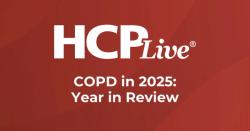
OR WAIT null SECS
Experts Advise on Asthma Care, Management during COVID-19
A new Canadian Thoracic Society guidance sets recommendations for continued or halted use of inhaled steroids, nebulizers, biologics, and more.
Christopher Licskai, MD, BSc, FRCPC
New commentary from the Canadian Thoracic Society (CTS) on the management of asthma during the coronavirus 2019 (COVID-19) pandemic advised on the use of popular drug classes including inhaled corticosteroids (ICSs), nebulizers, and biologics among patients at risk of contracting the virus.
In a pre-published guidance shared online this week, a team of clinical investigators led by Chistopher Licskai, MD, BSc, FRCPC, of Western University in London, Ontario, provided summary comments on the CTS’ position regarding asthma management during the pandemic.
“In general, asthma maintenance and exacerbation management should continue according to national and international guidelines during the COVID-19 pandemic, however treatment decisions should be individualized based on patient characteristics,” they wrote. “Optimal asthma control is expected to be the best protection against a SARS-CoV-2 exacerbation.”
As they noted in their advisory, patients with asthma are actually not at greater risk of contracting SARS-CoV-2 infection. The largest studies published to date pertaining to the COVID-19 patient population in both the US and China, they wrote, have not been overrepresented by asthmatics.
That said, Licskai and colleagues acknowledged the possibility that, as a chronic respiratory condition, asthma may be associated with a higher risk of severe illness or death due to COVID-19 illness. There remains no definite evidence confirming or conflicting that association, however.
“While comorbid illness is common in people who are admitted to hospital and in people who die from COVID-19, asthma has not been identified as an independent risk factor for severe illness or death,” they wrote.
Though patients with asthma have not been overrepresented in multinational assessments of COVID-19 patients suffering from severe illness, the Chinese Center for Disease Control and Prevention has reported a greater-than-average fatality rate among patients with comorbid, chronic respiratory disease. Asthma has not been evaluated by the organization as an independent risk factor.
The team emphasized the need for restarted or continued prescribed ICS use, with or without long-acting beta-agonist (LABA) or long-acting meta-antagonist (LAMA), for the improvement of asthma control and the reduce severity of exacerbations that may even be causey SARS-CoV-2.
“There is no evidence that inhaled corticosteroids increase the risk of acquiring COVID-19 or that inhaled corticosteroids increase the severity of infection,” they wrote. “Most importantly, inhaled corticosteroids are key to maintaining disease control in most patients with asthma, and well controlled asthma is probably the best protection against a SARS-CoV-2 virus induced asthma exacerbation.”
Regarding prednisone, Licskai and colleagues observed no current evidence of harm when the corticosteroid is used to treat asthma exacerbations. When used briefly to treated acute asthma exacerbations, it is expected the drug does not compromise users’ immune systems enough to increase SARS-CoV-2 infection risk or the development of COVID-19.
Biologics are supported—an in appropriate cases, encouraged—for use during COVID-19 spread. Investigators noted agents including omalizumab have been shown to protect against viral-induced exacerbations, and monoclonal antibodies that inhibit the interleukin-4, -5 and -13 (IL4; IL5; IL13) pathways safely reduce severe asthma exacerbations—and as a result, reduce the likelihood of a patient seeking emergency care during the pandemic.
Nebulizers administered within healthcare facilities were not recommended by investigators, excepting for patients who are unable to use a metered dose inhaler (MDI) with a spacing or dry powder device. The agent has been shown to increase the risk of aerosol spread of virus particles, and therefore, the risk of infection among present healthcare workers.
“The recommendation to avoid nebulization applies to all patients, not only to patients that have confirmed or suspected COVID-19,” they noted.
Lastly, Licskai and colleagues emphasized the need for patients with asthma to follow local, national public and global health advisories regarding social distancing and isolation. In instances where it is possible, they stressed that asthmatics work from home for the foreseeable future.
The guidance, “Key highlights from the Canadian Thoracic Society’s Position Statement on the Optimization of Asthma Management during the COVID-19 Pandemic,” was published online by CHEST Journal.


